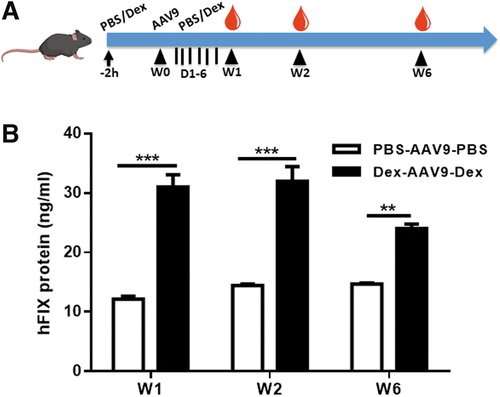
Dexamethasone, a glucocorticoid with anti-inflammatory and immunosuppressive effects, can transiently increase the expression of therapeutic genes delivered using adeno-associated virus (AAV) vectors. A new study, which showed that dexamethasone administration at a late time point could increase transgene expression from AAV9 vector transduced liver in mice, was published in the peer-reviewed journal Human Gene Therapy.
“Corticosteroids like dexamethasone, methylprednisolone and prednisone are frequently used in AAV-based human gene therapy protocols, but the optimal timing of such therapy has not been thoroughly studied,” says Human Gene Therapy Editor-in-Chief Terence R. Flotte, MD. “This paper provides an interesting insight into the potential effects of short-duration steroid therapy.”
Chengwen Li, Ph.D. and coauthors from the University of North Carolina at Chapel Hill demonstrated that the increased transgene expression was not dependent on the duration or time point of dexamethasone administration after AAV injection. The researchers did not report increased transgene expression in hemophilia dogs treated with dexamethasone after AAV gene therapy.
Source: Read Full Article
